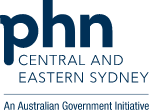

This page contains information for nurses related to immunisation. See also our dedicated Nursing in general practice page.
Nurses working in the Central and Eastern Sydney PHN region can register for our Health Professionals Network for free, allowing you access to our newsletters, immunisation education and many other CPD events.
No scholarships currently available
See our Nursing in General Practice page
While the foundational education of RNs, ENs, NPs and midwives in Australia captures the full breadth of the scope of the profession at the graduate entry level, the scope of practice of individual practitioners is influenced by the settings in which they practice.
The Register of practitioners contains information for all nurses and midwives who are registered to practice in Australia, and whether they have any restrictions or conditions associated with their registration.
NCIRS resource: Authorised nurse immuniser courses accepted in States and Territories (18 March 2023)
HESA accredited programs – Health Education Services Australia provides a list of all accredited education programs.
NSW Health also lists the ANI programs approved for use in NSW.
Upon completion of an accredited program, a Registered nurse (RN) or Midwife will be a qualified Authorised Nurse Immuniser able to immunise independent of medical officers in NSW for specific vaccines as listed in the Authority for RNs and Midwives .
If practicing outside of NSW, check health policies in the relevant state or territory to confirm eligibility to immunise independent of medical officers.
To maintain authority to immunise, the Authorised Nurse Immuniser must annually review best practice policy for immunisation. This may be, but is not limited to, attendance at seminars on current practices. An annual statement of proficiency in CPR must also be obtained.
To maintain authority to immunise, registered nurses must annually review best practice policy for immunisation.
This may be, but is not limited to, attendance at seminars on current practices. An annual statement of proficiency in cardio-pulmonary resuscitation (CPR) must also be obtained.
| Accreditation: APNA
Credits: 12 CPD hr Duration: 12 Hours |
Immunisation in the Primary Health Care Setting
‘Immunisation in the Primary Health Care Setting’ is an online learning program based on the clinical recommendations and information contained within the Australian Immunisation Handbook. This program is suitable for primary health care nurses who are keen to update their immunisation knowledge. ‘Immunisation in the Primary Health Care Setting’ is made up of five modules as well as an additional module specific to each state or territory. The modules are an enjoyable way to learn, and provide useful links to other sources of information. Each module will take approximately two hours to complete. This course does not enable a nurse to become an accredited immuniser. |
| Accreditation: ACN
Credits: 1 CPD hr Duration: 1 Hour |
Anaphylaxis guidelines and treatment options for nurses/nurse practitioners
This activity has been designed to increase your confidence in identifying and managing patients susceptible to experiencing emergency anaphylaxis reactions, including the prescribing of available adrenaline autoinjectors. It aims to highlight the differences between mild/moderate reactions and anaphylaxis, review the most current and updated guidelines regarding the indications and dosage of adrenaline autoinjectors and ensure best practice in anaphylaxis management in practice. |
| Accreditation: ACN
Credits: 1 CPD hr Duration: 1 Hour |
A targeted approach to increasing vaccine confidence among nurses
An interactive online activity designed to empower nurses with communication skills that increase the effectiveness and level of confidence of their conversations with patients regarding vaccination.
|
| Accreditation: ACN
Credits: 3.5CPD hr Duration: 3.5Hour |
National Vaccine Forum webinar – for nurses
Each year, the National Vaccine Forum brings together Australias primary healthcare professionals for a dynamic and engaging discussion on the current challenges and possibilities surrounding vaccines in Australia. |